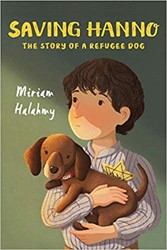In Jews Don’t Count, Jewish British comedian David Baddiel digs deeply into the subtle but pernicious form of antisemitism present today. Using examples from the literary world, the film industry, sports, politics, and even the culinary world, he shows that antisemitism is alive and well, even among progressives who have admirably devoted themselves to social justice.
The argument woven throughout the book is that there is a “hierarchy of racisms,” which consistently places Judaism at the low end of the list of importance. The rules that apply to discourse about other ethnic minorities and marginalized groups do not seem to apply to Jews. Among those rules (which he details throughout the book) is that “those who do not experience racism need to listen, to learn, to accept and not challenge, when others speak about their experiences. Except … [n]on-Jews, including progressive non-Jews, are still very happy to tell Jews whether or not the utterance about them was in fact racist.”
Baddiel doesn’t shy away from the thorniest questions. Is Judaism a religion or an ethnicity? He points out that people often try to “downgrade the category of antisemitism to that of religious intolerance.… Except antisemitism has very little to do with religion.” Case in point: “Racists who don’t like Jews never ask the Jew they are abusing how often they go to synagogue.”
When is it anti-Zionism and when is it antisemitism? Here, Baddiel offers a litmus test. “One of the things about antisemitism is: it’s a very old racism. There are bad … associations that antisemites have been applying to Jews for centuries, for long before 1948, when the state of Israel was established. If these are found within a political conversation about the present-day Middle East, then my anti-Jewish racism radar goes off.”
But the murkiest question is this: In the context of racism, are Jews white? Baddiel talks about “Schrodinger’s White,” which is to say sometimes yes, sometimes no, depending on the context. But if this question of Jewish whiteness is irksome, it’s because it is misunderstood. “ … being white was not just about skin color, but about security.… White really means: safe.” Using data and examples from the United States and across Europe, Baddiel offers a clear answer. He also acknowledges that this point “.… may have no resonance for those Jews who are clearly non-white. And who sometimes, for that very reason, have to suffer discrimination against them from other Jews.”
Jews Don’t Count is a mini masterpiece. It is a laser-sharp assessment of the newest version of an age-old hatred. It’s a book for “anti-racists, or at least, those who would claim to be so,” as the author writes. But it is also a book for all of the Jews who have followed the evolution of identity politics with growing discomfort at the myriad ways in which this particular form of bigotry is not only tolerated but oftentimes unrecognized as bigotry at all. Pointing out the marginalization of Jews from the discussion of racism is often met with accusations of racism, Baddiel writes. “The point about this accusation is that it leaves Jews who feel the hierarchy of racisms — who see and hear it every day … —nowhere to go.”
Ada Brunstein is the Head of Reference at a university press.




